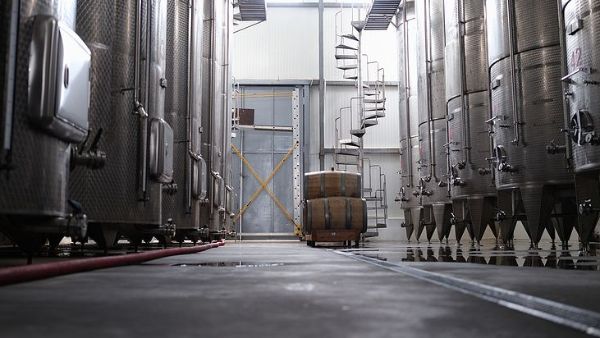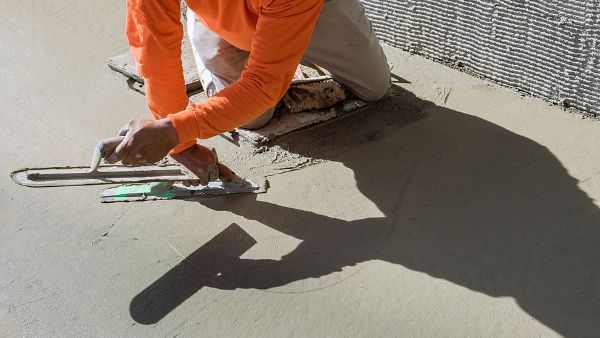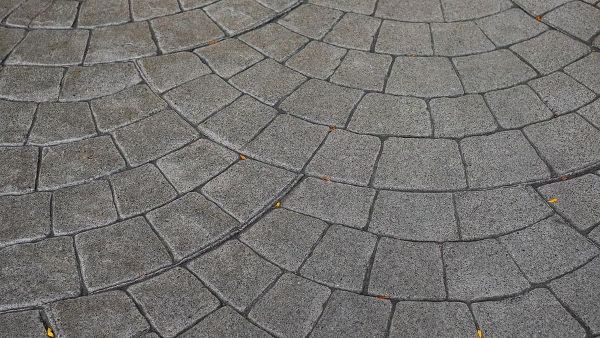8 Types of Concrete To Know
Find Out About 8 Kinds of Concrete Used in Construction
Concrete is an essential component of most projects because of its longevity, durability and strength. Many kinds of concrete serve various purposes, making it vital to know which is appropriate for each task. A concrete contractor understands the many factors involved in choosing the right type.
What Does a Concrete Contractor Do?
Mixing and installing concrete requires experts with the experience and knowledge to create structures that fulfill their intended objectives. A general contractor specializing in concrete installations and applications assesses many aspects of a project to determine the correct concrete for the job.
What Is Concrete?
Concrete is a composite that consists of three components: cement, water and an aggregate of either sand, gravel, rock or cement. Contractors obtain varying properties using different ratios of these ingredients. The mixture hardens when placed.
The workability, durability and stability vary depending on the concrete type. The proportions of the mix, air contents, compaction methods, and placing and curing processes affect the final products.
Mix Proportions
Concrete mix design is the process of obtaining the required strength for a structure. The two primary mixes produce different results:
- Nominal mixes offer simplicity for typical construction projects like residential buildings. The volume of the materials provides the basis of the ingredient ratios.
- Design mixes utilize lab tests of the components' properties to finalize proportions and determine compressive strength. The weight of the ingredients is the basis of these mixtures.
Methods
Concrete mixing procedures affect quality and quantity. Correctly combining the materials ensures uniform, consistent concrete. The two methods of mixing are:
- Hand mixing: Workers use this method for typical, small-scale concrete jobs. They place the predetermined measures of cement and aggregates on a flat, water-tight surface. They mix the two components, then gradually and continuously add the correct amount of water, combining with specialized tools.
- Machine mixing: Large construction projects generally require concrete mixed by a machine. Mixers offer an efficient way to produce large quantities of the material. A concrete contractor places the ingredients into a machine that combines them automatically.
What Are Some Essential Types of Concrete?
Concrete's versatility and moldability make it suitable for a multitude of structures. There are many types of concrete with different applications, including:
1. Normal Concrete
Contractors typically use this type of concrete for home construction projects, buildings or pavements that do not require high tensile strength. This mixture does not withstand vibrations or wind loading well. It contains a 1:2:4 ratio of cement, aggregate and water. Normal concrete generally requires 30 to 90 minutes to set.
2. Lightweight Concrete
This concrete incorporates lightweight aggregates, like perlites, scoria, pumice, clays and expanded shales to achieve the desired low density. A concrete contractor typically uses this mixture to construct building blocks and long-span bridge decks.
3. Ready-mix Concrete
Nearby mixing plants manufacture this specialty concrete based on precise specifications. Cement trucks mix the concrete during transport to the worksite. The material does not need further treatment, making it ready to use upon arrival.
4. Precast Concrete
Manufacturers mix, pour, mold and cure this concrete in a factory or other controlled environment. Contractors have these units transported directly to worksites for quick assembly. Consistent quality enables companies to save time and money.
5. Reinforced Concrete
This concrete type has many uses in modern construction. Including reinforcements like steel rods, cables, meshes or wires into the material before it hardens enables the resulting structure to resist tensile and compressive forces.
6. Prestressed Concrete
Like reinforced concrete, this kind uses bars or tendons placed at each end of the structural unit. This technique stresses the reinforcements before the concrete application. The process increases the lower section's strength against tensile forces.
7. Air-entrained Concrete
Producing this type of concrete involves the introduction of microscopic air-entraining agents, like fatty acids, resins or alcohols, during mixing. The resulting air pockets enable internal pressure relief when freezing temperatures cause water to expand. The amount of air varies by location conditions.
8. High Density Concrete
This mixture requires the use of a heavy-weight aggregate. Crushed barite, a white or colorless mineral form of barium sulfate, is usually the central ingredient. It has low solubility and is physically unreactive. High-density concrete resists radiation, making it valuable when constructing atomic power plants or other structures requiring a high mass-to-volume ratio.
Our Contractors Specialize in Concrete Applications and Installations
Knowing the correct type of concrete for your construction job requires an in-depth understanding of many factors. The contractors at RTS Construction have the experience and knowledge to make your building project a success. Contact us at (707) 318-4430 or online to learn more about our services.
Sources:
https://iopscience.iop.org/article/10.1088/1757-899X/936/1/012019
https://civiconcepts.com/blog/concrete-mix-ratio
https://www.ncbi.nlm.nih.gov/pmc/articles/PMC4862807/
https://geology.com/minerals/barite.shtml





